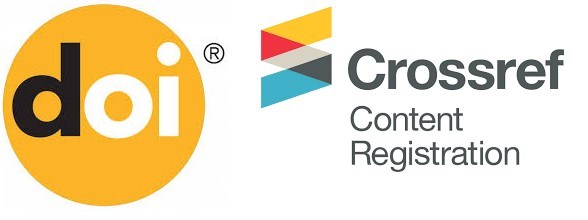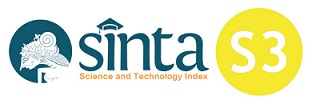Errors of Arabic Writing
(A Case Study of The Writing by The Participant of Amsilati Program at Pondok Pesantren Darussalam Blokagung Banyuwangi)
DOI:
https://doi.org/10.32699/liar.v3i01.1000Keywords:
Writing Errors, Rule of Imla', Maharah KitabahAbstract
This research is an error analysis study that aims to describe the primary forms of error in writing Arabic following the rules of the 'imla' and the factors that influence it on the guidance participants of the Amtsilati Darussalam Council of the Islamic Boarding School in Blokagung Banyuwangi. This research is field research, where the approach uses qualitative methods descriptive analytics for data processing. In this study the authors used several methods namely methods of data collection and data analysis which use several ways including observations, tests, interviews, and documentation so that it can describe learning activities, forms of fundamental errors in writing Arabic such as writing errors hamzah qatha', reduction harf, addition harf, writing harf toothed, writing harf continued and separate, replacement harf and the factors that influence it on the participants of the Amtsilati Darussalam Assistance Board of Darussalam Boarding School Blokagung, Banyuwangi.
References
Arikunto, Suharsimi, Prosedur Penelitian, Jakarta : PT. Rineka Cipta,1991.
_____, Manajemen Penelitian, Jakarta: PT. Rineka Cipta, 1998.
_____, Prosedur Penelitian Suatu Pendekatan Praktek, Jakarta : PT. Rineka Cipta, 1993.
Azmia, Mela, Analisis Kesalahn Imla' Siswa Kelas VII MTsN Godean Sleman Yogyakarta Tahun Ajaran 2015/2016, Skripsi, Yogyakarta: UIN Sunan Kalijaga, 2016.
Crystal, David. 1980. A Dictionary of Linguistics and Phonetics. New York: Basil Blackwell Ltd.
Gie, Liang, Terampil Mengajar. Jogja: Andi offset, 2002.
Hasani, Zhul Fahmy, 2013, Penerapan Metode Imla' Untuk Meningkatkan Keterampilan Menulis Siswa Kelas VII C MTs Muhammadiyyah 02 Pemalang, Skripsi Universitas Negeri Semarang.
Hermawan, Acep.. Metodologi Pembelajaran Bahasa Arab. Bandung: PT Remaja Rosda Karya, 2011.
Jabbar, Abdullah Abdul dkk, Kitab al-Imla', Iraq : el-Manahj, 2015.
Lie, Anita, Cooperatif Learning (edisi revisi). Jakarta: Grasindo, 2005.
Munjiah, Ma'rifatul, Imla' Teori dan Terapan, Malang: UIN Malang Press,2009.
Najakha, Azifatun. 2018. Fa'aliyah Istikhdam Istirotijiyyah Active Knowledge Sharing Li Tarqiyyati Maharah Al-Kitabah Li Thullab Al-Fashl Al-Sabi' Bi Madrasah Al-Tsanawiyyah
Sebayang, Abdul Aziz, 2017, Design Pembelajaran Imla' Dalam Meningkatkan Kemampuan Menulis Tulisan Arab Bagi Santri Pondok Pesantren Ar-Raudlatul Hasanah Medan. UIN Sumatera Utara Medan.
Sudjono, Anas, Teknik Evaluasi Pendidikan Satuan Pengantar, Yogyakarta: UD. Rama, 1986.
_____, Pengantar Evaluasi Pendidikan, Jakarta: PT. Raja Grafindo Persada, 1995.
Sugiono, Metode Penelitian Kuantitatif, Kualitatif, dan R & D, Bandung: Alfabeta, 2008.
_____, Metode Penelitian Pendidikan, Bandung: Alfabeta, 2009
_____, Metode Penelitian Pendidikan Pendekatan Kuantitatif, Kualitatif, dan R & D, Bandung: Alfabeta, 2010.
Syamsiyah, Barid, 2016. Analisis Kesalahan Berbahasa (Studi Kasus Kesalahan Penerapan Kaidah Imlak Pada mahasiswa Studi Intensif Bahasa Asing 2015/2016), UIN Sunan Kalijaga.
Downloads
Published
Issue
Section
License
Authors who publish with this journal agree to the following terms:
a. Authors retain copyright and grant the journal right of first publication with the work simultaneously licensed under a Creative Commons Attribution-ShareAlike 4.0 International License. that allows others to share the work with an acknowledgement of the work's authorship and initial publication in this journal.
b. Authors are able to enter into separate, additional contractual arrangements for the non-exclusive distribution of the journal's published version of the work (e.g., post it to an institutional repository or publish it in a book), with an acknowledgement of its initial publication in this journal.
c. Authors are permitted and encouraged to post their work online (e.g., in institutional repositories or on their website) prior to and during the submission process, as it can lead to productive exchanges, as well as earlier and greater citation of published work (See The Effect of Open Access).












